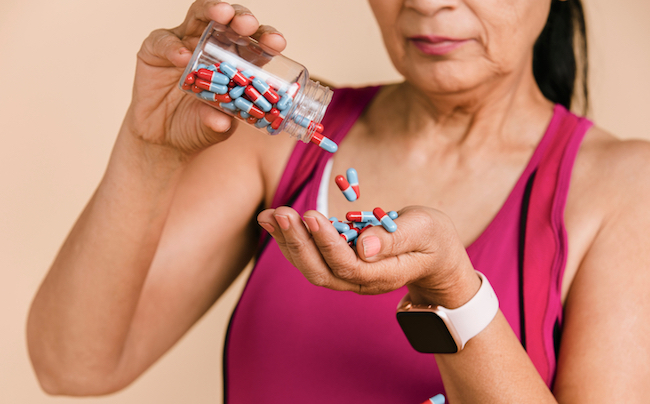Plus: The jury is still out on telehealth; a quick and simple way to reduce drinking; and eating disorders and the brain
By William Wagner
Scientists have been trying to combat the opioid epidemic in a number of ways, including by developing a vaccine. The latest potential breakthrough relates to a “safe” opioid, one that isn’t addictive.
We also turn our attention to the extent to which telehealth works, the effectiveness of brief alcohol-targeted interventions in one-on-one medical settings, and the role of the brain in eating disorders.
From Nature:
Opioids That Circumvent Pleasure
For people suffering from chronic pain, the powerful analgesic properties in opioids are a godsend. The problem is, those medications are also highly addictive. Researchers from the University of Washington are hopeful that they’ve identified the building blocks of a solution: an opioid that provides pain relief but also circumvents the reward circuit of the brain (the nucleus accumbens) that feels pleasure and creates the withdrawal symptoms that define addiction.
In a study published in Nature, the researchers homed in on mu-opioid receptors, which are the targets of opioids. As Michael Bruchas, PhD, one of the study’s authors, explained in a news release: “Mu-opioids like morphine act on specific receptors in the brain, like keys in a lock. We isolated a new brain pathway where these receptors exert powerful effects to promote reward consumption behavior.”
Those opioid receptors, the researchers discovered, are located in a part of the brain called the dorsal raphe nucleus. Said Daniel Castro, PhD, the lead author of the study, “This finding was pretty unexpected.” The development of a safer opioid hinges on creating a way to influence—or lock down—the communication between the nucleus accumbens and dorsal raphe nucleus parts of the brain when the drug is consumed.
From Psychiatric Services:
Telehealth Benefits Are Still Largely Unknown
Telehealth has gained significant traction during the COVID-19 pandemic, so much so that it likely will become a permanent part of the addiction treatment toolkit. The jury is still out, however, on whether it has much upside. Researchers from RTI International and UCLA surveyed addiction treatment professionals in California, and the results were split: 46% said telehealth individual counseling was equally effective as or more effective than in-person, and 45% called it less effective. A paper on the subject published in Psychiatric Services reached a somewhat lackluster conclusion: “Additional research is needed to confirm that benefit and to determine how best to tailor telehealth to each patient’s circumstances and with what mix of in-person and telehealth services.”
From Addiction:
Brief Interventions Can Reduce Drinking

Short and structured one-on-one interventions in a medical setting like a doctor’s office are at least somewhat effective, according to a new study in Addiction. Researchers analyzed findings from 116 trials and 64,439 participants, and found that these interventions resulted in one less drinking day per month.
“A reduction of one drinking day per month may not sound like much, but small individual reductions can add up to a substantial reduction in population-level harms,” Emily Tanner-Smith, PhD, an associate professor in the University of Oregon’s Counseling Psychology and Human Services Department and the study’s lead author, said in a news release. “Given their brevity, low cost, and minimal clinician effort, brief interventions may be a promising way to reduce alcohol use, one patient at a time.”
From Neuron:
Why Do We Overeat?
Almost all of us have occasionally eaten to the point where we feel like we’re going to burst. But why? A research team from the University of Washington believes it’s partially for the same reasons certain people become addicted to drugs or alcohol. The study suggests that regions of the brain that control eating habits partially overlap with those relating to substance addiction. This is the latest of many studies that link brain functions to eating disorders.
Top photo: Shutterstock














